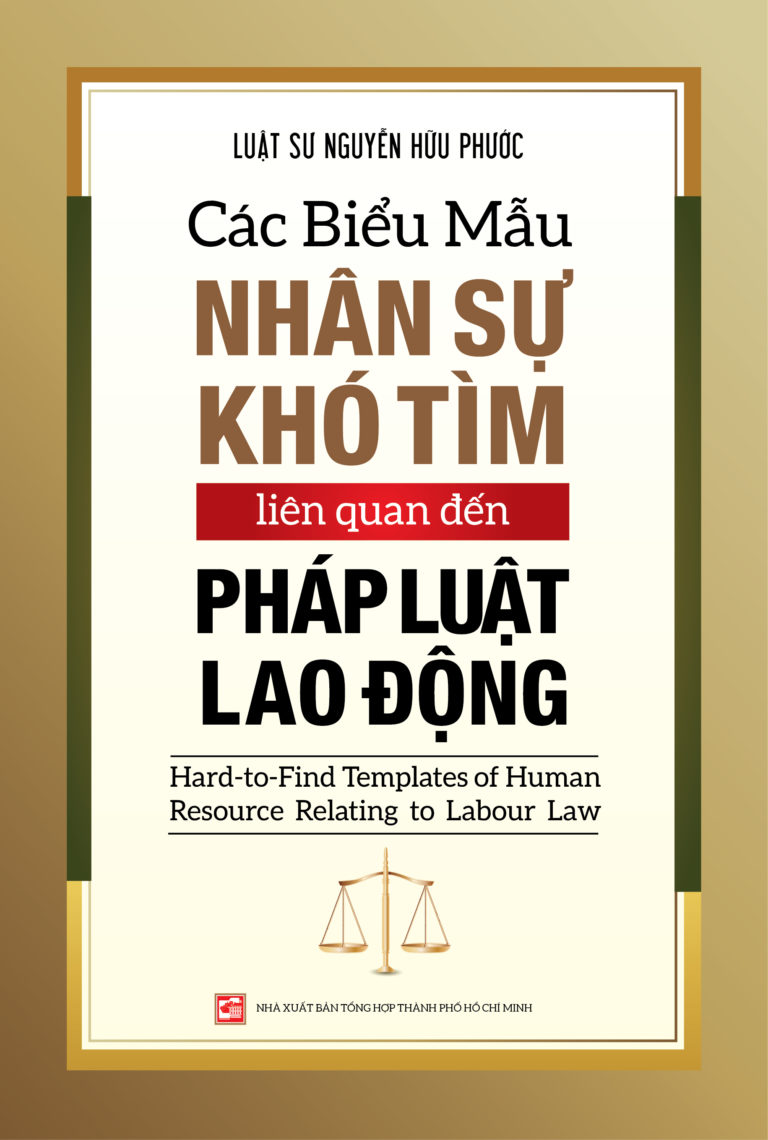Inadequacies When Enterprises Carry Out Loan Procedures From the Vietnam Bank for Social Policies
(Ngo Thi Ngoc & Hoang Minh Khanh – Phuoc & Partners International Law Firm)
After being severely hit by the Covid-19 pandemic, currently, the Government and enterprises have prioritised recovering the economic. There have been not only policies supporting individuals and employees being in difficulties but policies for enterprises are also taken into account and issued by the Government. One of the policies currently interested by enterprises is the loan policy from the Vietnam Bank for Social Policies (“VBSP”) to support enterprises in: (i) paying salary for ceasing work to employees participating in social insurance; and (ii) recovering production and business according to Resolution No.68/NQ-CP.
Despite clear and specific legislations, it is quite challenging to implement these legislations when many enterprises have not yet accessed to the support package or been having difficulties carrying out administrative procedures, which makes the support policies unsupportive in resolving immediate problems.
Support policies for enterprises to get loan according to Resolution 68/NQ-CP
In addition to meeting the legal requirements to get loans[1], the similarity between both support policies that the Government provided enterprises is the incentives, which include: (i) unsecured loans at the interest rate of 0%; (ii) a loan term of less than 12 months; and (iii) calculated by the region-based minimum salary for the number of employees being paid salary for ceasing work or those under labour contracts participating in social insurance.On the loan maturity date, if the enterprise fails to make the payment, VBSP will transfer the entire outstanding balance of the loan to overdue debt and apply the late payment interest rate of only 12%/year, while the fixed-rate loan contract under the Civil Code 2015 shall not exceed than 20%/year[2]. On the other hand, Resolution 126/NQ-CP also removes provision that allows enterprises having bad debts in credit institutions to get the loan.
It can be seen that regulations from the policy have shown support and incentives for enterprises when finance and cash flow are their urgent needs. Thus, with the above loan policy, enterprises may take advantage of financial support and be rest assured in their financial standing to set aside a portion for loan repayment.
From policies to implementation – inadequacies
Although the regulations seem clear and comprehensive, in practice, enterprises face many difficulties in implementing these regulations.
In terms of dossiers, apart from the list of required documents and forms[3], currently, there has been no documents with adequate and specific instructions on how these documents shall be drafted. Therefore, throughout the process of completing the dossiers, enterprises still seek guidance from specialised authority. And in fact, this is where difficulties start.
Firstly, there is a disagreement about the implementation of procedures within localities itself and specialised departments at the authority when consulting procedures for enterprises. Typically in the process of making certification documents: “Enterprises have to temporarily suspend operations at the request of competent state agencies to prevent and control the Covid-19 pandemic…”, VBSPs’ requirements for loan documents vary from locality to locality. Several VBSPs only require enterprises to be headquartered in the province/city where the Prime Minister’s Directive 16/CT-TTg is applied, meanwhile several VBSPs require enterprises to provide documents on the blockade of that locality issued by the local authority where the enterprise is located, several VBSPs even require enterprises to request for affirmation from the local authority in which shows that such an enterprise has been suspended from operating due to social distancing. However, these agencies rejected to confirm since they believe that this is not under their authority. Regarding the loan interest rate, although the guiding document clearly states that the loan term is “less than 12 months from the first date of disbursement of loan”[4], meanwhile, in fact, when reviewing loan applications, VBSP requires enterprises to record the loan term as “11 months, repay the loan in the last instalment from the date of signing the loan contract”.
In some cases, inconsistencies in understanding and implementation of procedures arise in an authority receiving dossiers. This happens when the officer receiving dossiers requires different preparation from their head of department in charge. As a result, this has caused confusion for enterprises when carrying out procedures, forcing them to check many different sources, or go back and forth just to request for unnecessary confirmations. This has shown the overlap and lack of consistency in administrative procedures which make difficulties for enterprises to prepare dossiers. Although other guiding documents also provide regulation on simplifying administrative procedures, speeding up implementation, specifically “Definitely no more procedures and documents arising other than those specified in Decision No. 23/2021/QD-TTG; not leaving dossiers overdue; if the dossiers need to be supplemented or modified, the authority have to promptly guide, and not having the dossiers transferred back and forth”[5], the above difficulty has been experienced.
Secondly, many enterprises have misunderstood the loan application or are confused about how to implement it correctly, for example, the power of attorney is not understood as when the legal representative of the enterprises authorizing the employee to proceed loan application, but rather as: (i) the power of attorney of the head office’s director authorizing the branch’s director if the enterprise’ branches are located in many locations; or (ii) Resolution of the members’ council for multi-members limited liability companies; or (iii) Resolution of the Board of Directors for joint-stock company on the loan plan on production, business recovery and the persons carrying out the loan procedures for enterprises. Regarding the plan on production, business recovery, there is no specific instructions as to whether enterprises shall formulate a monthly plan to convince VBSP of the ability to repay the loan or a long-term plan for the long-term recovery plan of enterprises. It can be seen that this procedure is still quite mechanical and inflexible as the recovery of production and business cannot be done within a short period of time.
In addition to the difficulties in loan application, there are many other barriers in carrying out the procedures, specifically, the step that enterprises shall request for a confirmation of the list of employees participating in social insurance from local social insurance authority. Currently, not only support policies for enterprises but policies for employees are also a hot topic, thereby leading to an overload for local labour management authorities, especially the social insurance one. As the main function & task of these authorities is to resolve employees’ benefits and interests, thus, they would prioritise handling employee-related documents, which means that enterprises might be rejected or shall wait to receive their confirmation. In addition to the overload reason, human resources at State administrative authorities are currently also a problem, although the unpredictable Covid-19 pandemic has invisibly accelerated the digital transformation process. The State has also oriented the development of digital transformation of the industry according to Decision No. 942/QD-TTg and Plan No.2402/KH-BHXH 2021, administrative procedures are gradually transforming from offline to online, for example, besides applying directly at the social insurance authority and VBSP where the enterprises are located, this loan procedure can be submitted online at the National Public Service Portal website: https://ncovi.dichvucong.gov.vn/p/home/dvc-ncovid-chi-tiet-ho-tro-nguoi-su-dung-lao-dong-vay-von-de-tra-luong.html. However, it seems that digital utilities only limit at the submission step, while completing the application for approval is still inadequate, which causes lack of faith in the effectiveness of the support policy.
Lastly, the entire loan application process in the following times[6] remains the same as the first time, which means that this process will be repeated and will not be simplified at the approval stage for each following monthWith such an cumbersome and challenging process above, enterprises shall have the dossier completed before 25 March 2022, even though they have only been allowed to reopen since October 2021 and the maximum loan term is only 03 months. It seems that the support policy has posed more challenges for enterprises when they are struggling to manage financial resources to recover production and business.
Recommendation
Long-term social distancing has caused severe loss to enterprises in general, and enterprises in the service industry in particular. Even when social distancing ends, economic activity gradually recovers, and enterprises are allowed to resume operations again, their operations cannot be stabilized instantly, but require a reasonable period to adapt to the “new normal”.Difficulties continue to challenge enterprises when they have to deal with other new problems, such as supply chain disruptions, increase in input costs, shortage of raw materials, leading to an increase in the cost of products and services while market demand decreases, the difficulty in goods circulation when the transportation between localities could not get through, enterprises have to bear new costs incurred for the prevention and control of the pandemic, the cost of goods storage, etc.In addition, the fourth quarter of 2021 is also a tough time for enterprises due to salary increase and bonus review for retention to prepare for the incoming growth in 2022. It can be seen that there are many financial and cash-flow problems that are surrounding and becoming a heavy burden on enterprises, especially small and medium-sized enterprises that have been exhausted after 04 months of social distancing with too many fixed costs to be paid but the revenue is almost zero.
In fact, the support policies from the Government are not the only option that enterprises expect when they have been struggling to cope since the first outbreak of the pandemic although these policies supporting enterprises’ cash flow have been promptly issued.The main reason was several barriers in terms of administrative processes resulting in delayed implementation.Over time, when it comes beyond endurance, as mentioned above, enterprises have to pump money in order to remain operation, even at a minimum capacity. It is sooner or later that enterprises are forced to leave the market since the right time “to be saved” has passed. When the aim removing difficulty in cash flow for enterprises is unable to achieve, it is the stituation that Government shall bear the burden at the end. Therefore, in order for enterprises to strengthen their faith and be able to access the support policies, keep standing side by side with the Government in the fight against the unending Covid-19 pandemic, the authorities need to review, re-evaluate the effectiveness of support policies and simplify administrative procedures so that policies can be swiftly implemented and put into practice.
[1] Article 38 of Decision 23/2021/QD-TTg guiding Decree 68/NQ-CP
[2] Article 468.1 of the Civil Code 2015
[3] Article 40 of Decision 23/2021/QD-TTg and Guideline 6199/HD-NHCS of VBSP
[4] Clause 7 of Guidelines 6199/HD-NHCS
[5] Official Letter 2157/BHXH-TST
[6] Point 10.3.2 Clause 1 Guidance 6199/HD-NHCS










